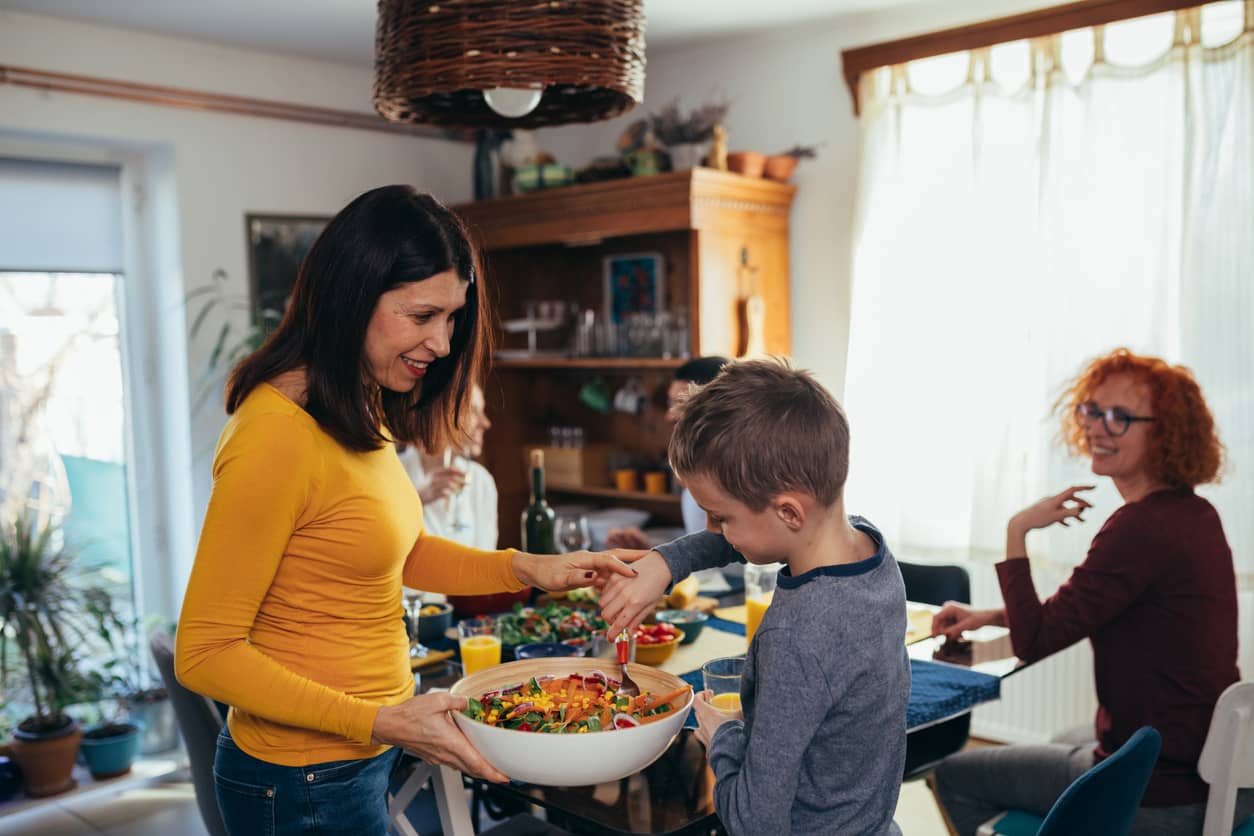William Shakespeare said, “Expectation is the root of all heartache.” When Shakespeare coined this phrase over four centuries ago, blended families and step-parenting went mainly unnoticed by social scientists. However, the quote is relevant in isolating a profound problem created by today’s blended families’ complex and unpredictable dynamics.
The nature of these relationships creates common problems and challenges that often cannot be anticipated. Yet, as families are combined, individuals may not realize the obscure expectations that often exist within them: expectations around roles, how well children will adjust, conflicting schedules, and interactions with former partners are just the tip of the iceberg of the complexities.
Estimated reading: 5 minutes
 As blended families are formed, the differing ages, cultures, rules, and values colliding can create big problems. Mounting emotions and complexities often grow, and so do the challenges. When building a blended family, expectations exist from all sides and often set the stage for increased conflict and unnecessary disappointment in an already challenging situation. Even well-intentioned outsiders, such as friends and colleagues, can fuel the difficulties through unsolicited advice and judgments by comparing their experiences to others.
As blended families are formed, the differing ages, cultures, rules, and values colliding can create big problems. Mounting emotions and complexities often grow, and so do the challenges. When building a blended family, expectations exist from all sides and often set the stage for increased conflict and unnecessary disappointment in an already challenging situation. Even well-intentioned outsiders, such as friends and colleagues, can fuel the difficulties through unsolicited advice and judgments by comparing their experiences to others.
Deep Dive: "The Blended Family and Parenting Survival Guide: Solutions for the Top 3 Challenges."
What Is an Expectation?
The word expectation comes from the Latin word expectationem, meaning “an awaiting.” An expectation is a belief about what might happen in the future. Expectations build assumptions about the future actions of others while our personal experiences cloud our perspective. Every person holds diverse standards and values; however, we cannot force or require anyone to live by those without agreement. Parents raise their children according to the values they espouse. Thus, when families are blended, values may clash.
The Problem with Expectations
Challenges in families are caused by assumptions and by neglecting to communicate clearly and openly with each other. All family situations require immense patience, looking at people and relationships objectively, and not getting attached to an outcome created in our heads. Having expectations of others or making assumptions in any situation is often a recipe for disappointment and disagreement.
Related Reading: Let Go of Expectations and Start Enjoying Your Relationship

3 Tips for Building Genuine Relationships in Blended Families
When we treat everyone with respect and use open and honest communication, we build genuine relationships with a strong foundation. Seeking to understand each member of a blended family can prevent problems before they start and help build healthier relationships, roles, and dynamics that support you over time.
The tips below will help you connect with yourself and your needs more readily, which can enable you to communicate more genuinely in your blended family.
TIP 1 - Grow Self-Compassion—It Is Ok to Feel What You Feel!
You may have an assortment of feelings about your blended family. Some feelings may be uncomfortable—even trigger you. It is ok to feel the way that you feel no matter what feelings you may feel inside. When listened to, your emotions will help you understand what you want and what is possible. This process takes work; to have the vision that you hold of a family match your reality requires aligning behaviors with that new outcome.
Being genuine begins with being genuine and gentle with yourself.
Related Reading: Learn to Recognize and Allow Yourself to Feel Your Emotions

TIP 2 - Control What You Can Control
The only thing you can control in a family situation is you—your attitude, actions, and words. Modeling tolerance and self-control are particularly important around children. Children watch how we interact and treat each other. Treating each member of the blended family (and beyond) with kindness and respect will show your children a value more prominent than conflicts and family dynamics. The underlying message will be one of compassion and that everyone is doing their best.
Showing compassion and empathy towards all family members is an excellent step in building trust and genuine relationships. Putting effort toward understanding the plight of another shows great respect and genuine care for others.
Related reading: “How to Navigate Being a Sibling in a Blended Family.”
TIP 3 - Don’t Compare Your Family to Other Families
Blended families are as unique as snowflakes—each one with different dynamics and needs. When comparing yourself to someone else, things are not always as they seem. If they appear to have it all together, you need to realize that they will have their own challenges, too. Just because a friend is in a blended family doesn’t mean that their experience or perspectives apply to yours.
You and your family know what is best for your family, and you get to make your own decisions together.
Blended families are a unique blend of adults and children with a distinctive story. All families take a conscious effort to grow and bond in ways that best support their members. Your family has its own story. How you write that story together through genuine, open, and honest communication ensures your blended family’s success.
Related reading: “Tips to Help You Survive—and Thrive—as a Blended Family.”
Heartmanity’s mission is to inspire, encourage, unconditionally love, and guide people to create emotionally safe, honest, thriving relationships.
We offer parenting resources as well as coaching to help
ensure your blended family is successful. Reach out to us at support@heartmanity.com.









